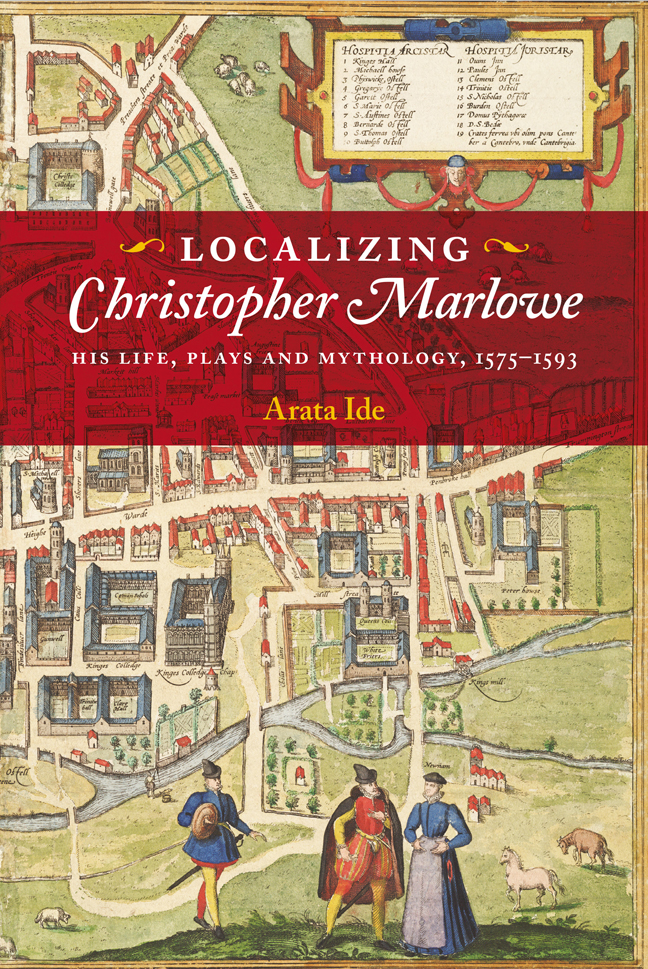Book contents
- Frontmatter
- Dedication
- Contents
- List of Illustrations
- Acknowledgements
- List of Abbreviations
- Timeline
- Note for the Reader
- Introduction
- Part I Life
- Part II Plays
- Part III Myths
- Conclusion
- Appendix 1 Transcript of the plan in Norfolk Record Office, NRS 23372, Z99
- Appendix 2 Transcript of the plan in Corpus Christi College Archives, CCCC08/28
- Appendix 3 Transcript and translation of the John Marley vs Nevell Hayes case
- Appendix 4 List of Foundation Scholars of Corpus Christi College, 1573–87
- Bibliography
- Index
- Miscellaneous Endmatter
8 - Ramism, Thomas Nashe, and the ‘New Sects of Singularitie’
Published online by Cambridge University Press: 22 February 2024
- Frontmatter
- Dedication
- Contents
- List of Illustrations
- Acknowledgements
- List of Abbreviations
- Timeline
- Note for the Reader
- Introduction
- Part I Life
- Part II Plays
- Part III Myths
- Conclusion
- Appendix 1 Transcript of the plan in Norfolk Record Office, NRS 23372, Z99
- Appendix 2 Transcript of the plan in Corpus Christi College Archives, CCCC08/28
- Appendix 3 Transcript and translation of the John Marley vs Nevell Hayes case
- Appendix 4 List of Foundation Scholars of Corpus Christi College, 1573–87
- Bibliography
- Index
- Miscellaneous Endmatter
Summary
Robert Norgate's memorandum titled ‘The exercises of Learning in Corpus Christi Colledg in Cambridg every daye in the weke from the begin-ning of the terme until the ending thereof ‘, found among the documents collected under NRS 23372, Z99, shows the college syllabus of a week at Corpus Christi. At six in the morning, after morning prayers (and after the exegetical sermons on Wednesdays and Fridays), the students read Aristotle's Natural Philosophy and Organon and John Seton's Dialectica in the hall for an hour. At noon, they attended Greek lectures in construction and grammar based on the writings of Homer, Demosthenes, Hesiod, and Isocrates. At three o’clock they listened to Tully's lectures on rhetoric, and at four they began the practice of logic and rhetorical disputation. The core of the programme was thus founded on the trivium and markedly preserved the vestiges of the medieval scholastic system of education.
Some scholars assume that, as a consequence of this kind of traditional and theologically oriented curriculum, disillusionment and boredom had been fermenting among the students; the university showed ‘an almost total lack of anything to stimulate the imagination or encourage original thought’, and the students were cramped ‘by the Reformation and so much of Calvin, the boring Reformers, the excruciating tedium of theology, stuffed with logic-chopping and syllogisms and dialectic’. Documents detailing disorder in the colleges and recording the repeated issuing of statutes are often considered as good evidence of this, as well as of the reluctance by the university administration to meet the supposed needs of an influx of students who were not necessarily headed for careers in the Church. Superimposing the famous passage in Doctor Faustus, ‘What doctrine call you this, Che serà, serà, / What will be, shall be? Divinity, adieu!’, on this theology-ridden atmosphere makes Faustus appear like a hero who stands in open rebellion confronting the crusty establishment of the university.
However, this interpretation of a heroic Faustus is a romantic illusion. The protagonist does not actually ponder what concerns him most as a research project. In terms of his academic interests, Aristotle's Analytics is stimulating enough, as he is happy to ‘live and die in Aristotle's works. Sweet Analytics, ‘tis thou hast ravished me!’ (A-text: i.i.5–6).
- Type
- Chapter
- Information
- Localizing Christopher MarloweHis Life, Plays and Mythology, 1575-1593, pp. 238 - 264Publisher: Boydell & BrewerPrint publication year: 2023



